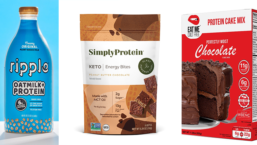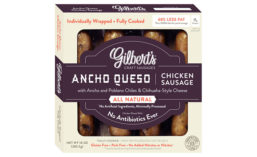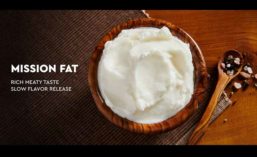Home » Keywords: » animal proteins
Items Tagged with 'animal proteins'
ARTICLES
PULP Culture BUILD, Protein-Boosted Hard Juice
The drink-maker ferments real animal proteins without animals, leveraging flavor science and technology to develop protein consumption alternatives
October 19, 2022
A Growing Marketplace Finds Meat and Poultry Processors Emphasizing Flavor, Convenience, Ethics and Environment
A Prepared Foods’ review of new meat and poultry products suggests how manufacturers are addressing meal solution ideas
July 11, 2022
CATEGORY INSIGHTS: PROTEIN
Plant and Animal Proteins Push Innovation Across Categories
Consumer demand for food and beverage products that feature protein has never been stronger
June 23, 2022
New Culture Names New Science Leadership
Josh Kittelson, PhD, joins company as vp of biology
April 19, 2022
Gilbert’s Craft Sausages Ancho Queso, Tuscan Recipe Flavors
A single package contains four antibiotic free, individually-wrapped sausages
May 27, 2021
Memphis Meats Becomes UPSIDE Foods
The move signifies that the company is now ready for business with its first consumer product: chicken
May 17, 2021
Mission Barns Raises $24M Series A to Scale Up its Cultivated Fat Technology, Build Pilot Production Facility
New technology platform enables starting from a handful of pork, poultry, or beef cells and feeding them a plant-based feedstock inside a cultivator
April 16, 2021
STATE OF THE INDUSTRY
Mainstream Meat, Poultry and Seafood Items Continue to Fuel Grocery Sales
Front and Center (Cut): Meat, poultry and seafood products fuel robust sales gains; plant-based offerings grow
March 16, 2021
US Consumers Find Variety of Sources to Increase Protein in Diets
Consumers are more informed about alternative protein sources and are taking full advantage of their knowledge
February 26, 2021










